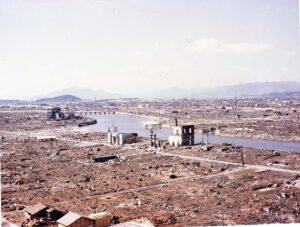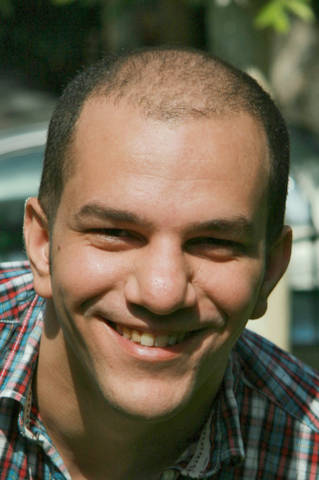Religious rites and wrongs in Egypt
By Osama Diab
The banning of a Jewish festival this year in Egypt is wrong, both from a secular and religious perspective.
Tuesday 17 January 2012
One of the conservative views in the United States during the debate on the construction of a mosque near ‘Ground Zero' in New York was that Saudi Arabia does not t allow the construction of churches, so why then should we, Americans, be so broad-minded about this mosque?
The simple and easy answer to this is that you cannot react to Saudi Arabia's low standards of freedom of belief and religion by adopting similar norms yourself. The standard of religious freedom in Saudi Arabia should be for no one to aspire to. Freedom of religion and belief are non-scalable rights and violations in one country should not be used to justify imposing restrictions elsewhere.
But it is not just the American Christian right which is playing this game. In Egypt, a Jewish religious ceremony, known as a “moulid” in Arabic, to commemorate the death of the Moroccan Rabbi Yaakov Abu Hasira, which takes place every year in January and attracts hundreds of Jews to the city of Damanhour, near Alexandria, usually takes place around this time of year. Security concerns have been commonplace during the festivities due to local residents' anger over the festival. The deployment of thousands of security forces, extremely tight security measures and little media coverage was the only way to prevent any clashes from taking place during the celebration.
However, in the aftermath of the revolution, the government of Egypt has decided to cancel the celebration altogether because the time is just not right due to the current political turmoil and lack of security.
This barring of Israeli pilgrims comes as no great surprise. Despite the presence of a three-decade-old peace treaty and the successful avoidance of any wide-scale military confrontation for almost years after fighting at least four wars in a quarter century, Egyptian-Israeli relations remain strained and the flow of citizens between the neighbouring countries is still rather limited.
Over the years, several court cases calling for the cancellation of the Abu Hasira moulid have been filed but the verdicts were ignored by the government. In 2004, the Supreme Administrative Court, whose rulings were regularly dismissed by the former President Hosni Mubarak's regime, supported a lower court's decision in 2001 to outlaw the annual festival.
The celebrations, which include a number of Jewish rituals, have mobilised various political groups from all across the political spectrum to sign a joint statement rejecting the Abu Hasira festival. Bloggers Against Abu Hasira, the Nasserist Trend, the Muslim Brotherhood, the Freedom and Justice Party, the April 6 Youth Movement and the Mohamed ElBaradei campaign have all signed the statement in what seems like a national consensus on the matter. The 2001 court decision linked the status of the site and the festival to the Israeli-Palestinian conflict. This was also the main motivation behind the rejection of Abu Hasira by political groups mentioned above.
But this is an unacceptable example of mixing politics and religion. It is important that we, and more importantly the judiciary and politicians, distinguish between tensions between states and religious celebrations. This moulid should have nothing to do with normalisation with Israel and the Palestinian conflict. As a religious festival, it immediately becomes a matter of religious freedom, protected by the constitution, which clearly says that “the state guarantees the freedom of creed, and the freedom to practice religious rites”. This means that the ban on the festival is, therefore, unconstitutional.
Even though the pilgrims are mainly from Israel, due to its geographical proximity and because this is many of Abu Hasira's co-religionists live today, Jews from other countries also attend the festival. If the point is to object to the actions of the Israeli state, it becomes crucial to distinguish between Judaism as a faith and Israel, which you have all right to criticise and even boycott.
Remember how moderate Muslims felt when they got lumped together with extremists in the aftermath of 9/11? Also, Egyptians and other Arabs cry “freedom of religion” and criticise Israel when it, for example, imposes restrictions on which Palestinians may pray at the Aqsa Mosque, so why the double standard in this case?
Moreover, there are so many other ways to protest the actions of the Israeli state while giving a good example of protecting religious freedoms. Egypt should not condemn suppression elsewhere by adopting similar measures at home. Two wrongs don't make a right.
Over and above these secular arguments, even Islam recognises Judaism as a “heavenly” religion and Jews as “people of the book”, along with Christians and Sabians. The essence of Islam is to treasure the members of the other Abarahmic faiths. The Qur'an quite clearly defines those who will be salvaged on judgement day: “Those who believe (in the Qur'an) those who follow the Jewish (Scriptures) and the Sabians and the Christians―any who believe in Allāh and the Last Day, and did righteousness―on them shall be no fear, nor shall they grieve.” Verse 5:69.
Islam also allows Muslim men to marry Jewish women (some older traditions even allow Muslim women to do the same). Paradoxically, this means that, both religiously and legally, a Jewish woman can raise the child of a Muslim man who lives across the road from Abu Hasira but not be allowed to visit the shrine.



Thanks Moshe for the valuable background information
Just to add to that point,
tangentially and personally, I am equally wary of the participation of
so-called religious parties in the political sphere whether in Israel,
Egypt or elsewhere.
The “hilula” of Rabbi Yaakov
Abuhasira, who was buried in Damanhour about 100 years ago, is not a
festival per se nor is it a new innovation. The custom of Sephardic Jews
celebrating the anniversary of a revered rabbi (Abuhasira is the
grandfather of the famous Moroccan rabbi of the same name known
worldwide as the Baba Sali) is one that has been around for at least
five centuries. (When I lived in Morocco, I witnessed similar rituals of
Moroccan Muslims honouring their saints.) Moreover, the statement that
“Muslims and Christians do not have the right to practice their rites
freely in Jerusalem” is somewhat misleading. In the 17 years that I
lived in Israel (1979-1993) there were no restrictions whatsoever on
Palestinians praying in Al-Aqsa. These only came into effect following
the intifada protests from Al-Aqsa during which boulders and stones were
tossed from above onto the Jewish worshippers in the Western Wall plaza
below, injuring several worshippers. Since then, restrictions have been
set in place, varying in accordance with age and the volatility of the
moment, not with intent to limit freedom of religion but to ensure the
security of Israel’s citizens. Whether or not one agrees with these
restrictions is another story, but their origins have nothing whatsoever
to do with a policy on curtailing freedom of religion and everything to
do with the protection of innocent civilians. To portray it otherwise
is historically inaccurate and untrue. Furthermore, there are no such
restrictions on Christians in Israel, and, apart from the Al-Aqsa
mosque, Muslims in Israel enjoy the same freedoms as Muslims in other
countries to practice their religion freely. Although I know Khaled and I
disagree on this point, I believe his assertion that religion be
separated from politics is a vital and significant message for people of
all faiths to bear in mind.
I don’t want to discuss this
any further, but allow me one last remark. I never objected to freedom
of practicing religious rites. As far as I know, Jews are allowed to
practice their rites inside their synagogues, even in Egypt. I just
don’t think that this Abo Hasseera festival is neither necessary nor is
it a religious rite. It is a made up modern festival, as far as I know.
We never heard of this festival untill 10 years ago or so. On the other
hand, Muslims and Christians do not have the right to practice their
rites freely in Jerusalem, under the Israeli occupation. So I really
don’t understand what all the fuss is about.
Well it really depends on
what the rules of my bedroom are, even though I don’t completely agree
with the analogy. If we want to treat Egypt the same way we treat our
private spaces and live in isolation, so be it, but let’s at least be
honest about it. The state as we speak, recognizes Judaism as an
‘official’ religion and grants unconditional freedom to practice
religious rites. If we are unable to meet this constitutional promise,
let’s not have it.
I have read the article, and I
am not confusing jews with Israelis, I have no problem whatsoever with
how people practise their religions, as long as it is not just an
invnention aiming at annoying others. How would you feel if all of a
sudden, I come to you with an argument, that I recently found out that
one of my ancestors has visited your bedroom a 100 years ago or so and
now every year me and my friends will perform a long day ritual in your
own bedroom?
Ahmed, I wonder after reading
your comment if you have actually read the article. The answer to your
third questions is actually the article’s core argument. I understand
your frustration (and I share the same sentiments) at the actions of the
Israeli state, but mixing the religious with the political and
confusing being Israeli with being a Jew is a problem that needs to be
addressed. As for your first two points, it is not really up to me to
decide what people should worship and where. Everyone is, or at least
should be, free to be spiritual the way they like.
Well, first of all this
tradition is, as far as I know, only 10 years old max, before that
nobody had ever heard of this Abo Hasseera. Second, if the shrine is so
sacred in Judaism all of a sudden, I don’t think anyone would object to
move the shrine to Israel, they can have him. Third, Muslims are not
allowed to visit Al Aqsa Mosque freely, why should we be happy that some
jews decided they need to organize annual pilgriamges to Damanhour?
Well said….